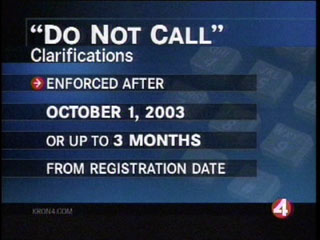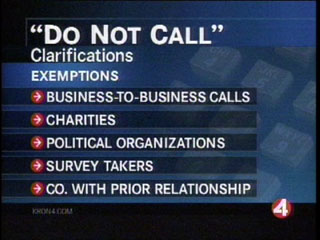This is a follow up to my earlier post regarding cellphone numbers being added to 411 lists, which I still think, as it stands, is a really bad idea.
There’s more at stake here than the (I believe, still valid) concern of actually be charged money by your phone company every time you are contacted by a telemarketer, which would also be horrible and unfair to consumers, but isn’t nearly as worrisome as establishing a practice of charging people extra if they don’t want their personal information sold.
If discounts are offered to people that are willing to allow their number to be included in a directory, that’s one thing. But again, it would need to be properly represented to the consumer that they were trading something valuable — their personal information — for a discount.
That said, it’s not only about telemarketers. It’s about privacy. If I want someone to have my cell phone number, I’ll give it to them. Otherwise, they can email me and request it, and if I want to give it to them, I will.
In general, I would rather be emailed than called on the phone — especially from people I’m not expecting.
The way it is now, I have a little control over who calls me on my already too busy telephone. I should not have to pay money to have my number remain unlisted. It is a right, not a privilege, in my opinion.
This is the wrong direction for these kinds of services to go — making people opt-out of having their information made public. They should always have to explicitly opt-in to such services. This is dangerous if giving up one’s personal information in order to participate in a basic communications service, such as cell phones, becomes the exception, and not the rule.
Hope this clarifies my broader privacy concerns surrounding these types of policies.
 Read about it on BoingBoing here.
Read about it on BoingBoing here.


